MercoPress. South Atlantic News Agency
Argentina
-
Tuesday, April 10th 2012 - 15:32 UTC
Argentina denies ‘political opportunism’ in Malvinas sovereignty-claim campaign
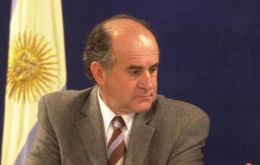
The Argentine government said that the Malvinas Islands sovereignty claim is “not political opportunism” or geared “to remove other issues from the country’s political agenda” and is coherent with the political and ideological thinking of both Presidents Cristina Fernandez and her late husband and former president Nestor Kirchner.
-
Tuesday, April 10th 2012 - 06:59 UTC
Fidel wonders about Canada’s position on Falklands issue at the Americas summit

Fidel Castro accuses Canadian Prime Minister Stephen Harper of suffering from illusions and says Canada should take a stand in the Falkland Islands dispute in a rambling new essay that lashes out against Cuba’s exclusion from a coming Organization of American States summit.
-
Tuesday, April 10th 2012 - 06:54 UTC
Uruguay will enjoy “positive discrimination” in bilateral trade with Argentina
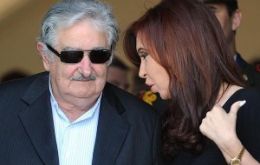
Argentina and Uruguay presidents Cristina Fernandez and Jose Mujica agreed Monday evening to discuss their trade differences in the framework of Mercosur and promote “positive discrimination” measures for Uruguayan exports to help compensate the restrictions imported to all imports by the Argentine government.
-
Tuesday, April 10th 2012 - 05:40 UTC
Repsol CEO in Argentina trying to prevent YPF takeover by the government
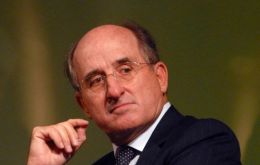
Repsol's chairman Antonio Brufau has asked for a meeting with officials from the Argentine government, which investors fear could seize control of the Spanish oil major's unit in Argentina, YPF.
-
Tuesday, April 10th 2012 - 05:12 UTC
Argentine factory begins production of Pampa training aircraft with German help
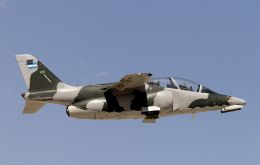
Argentina’s government controlled Aircraft Factory, Fadea, plans a production of 100 Pampa II training and combat aircraft at its plant in Cordoba in association with the German company Grob Aircraft AG, it was announced.
-
Monday, April 9th 2012 - 06:20 UTC
Argentine government in full force support Vice-president accused of embezzlement

The Argentine government came out in full force over the weekend to back Vice-President Amado Boudou after he was accused of embezzlement in what become known as the “Ciccone Case”.
-
Monday, April 9th 2012 - 06:17 UTC
FT says UK trying to collect £ 45m Argentina used in the Falklands’ conflict

According to a piece from the Financial Times Britain is chasing £45m of debt owed by the Argentine government that was lent to the military Junta in 1979 and used, in part, to buy weapons that were later used during the Falkland Islands in 1982.
-
Monday, April 9th 2012 - 05:39 UTC
Wild Viking being held in Puerto Williams
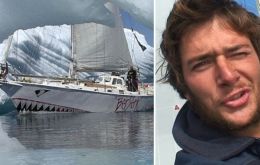
Norwegian rogue yachtsman Jarle Andhøy, 34, along with four other crew members on the 54-foot yacht steel yacht Nilaya - who were arrested last week by the Chilean Navy - are being held at the Chilean Naval base in Puerto Williams, after apparently after giving a false name for the vessel when hailed by the Chilean Navy according to press reports from Chile and New Zealand over the weekend.
-
Saturday, April 7th 2012 - 07:07 UTC
Obama administration sides with Argentina in case filed by ‘vulture funds’
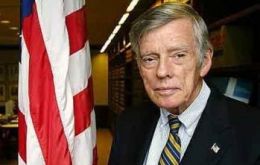
The US has sided with Argentina and asked a federal appeals court to reverse lower-court rulings stemming from bond holders’ attempts to collect on judgments against the Argentine Republic.
-
Thursday, April 5th 2012 - 23:16 UTC
United Airlines inaugurates daily non-stop service between Newark and Buenos Aires

United Airlines will begin daily non-stop service between its hub at Newark Liberty International Airport and Buenos Aires, Argentina's, Ministro Pistarini (Ezeiza) International Airport on April 6.
